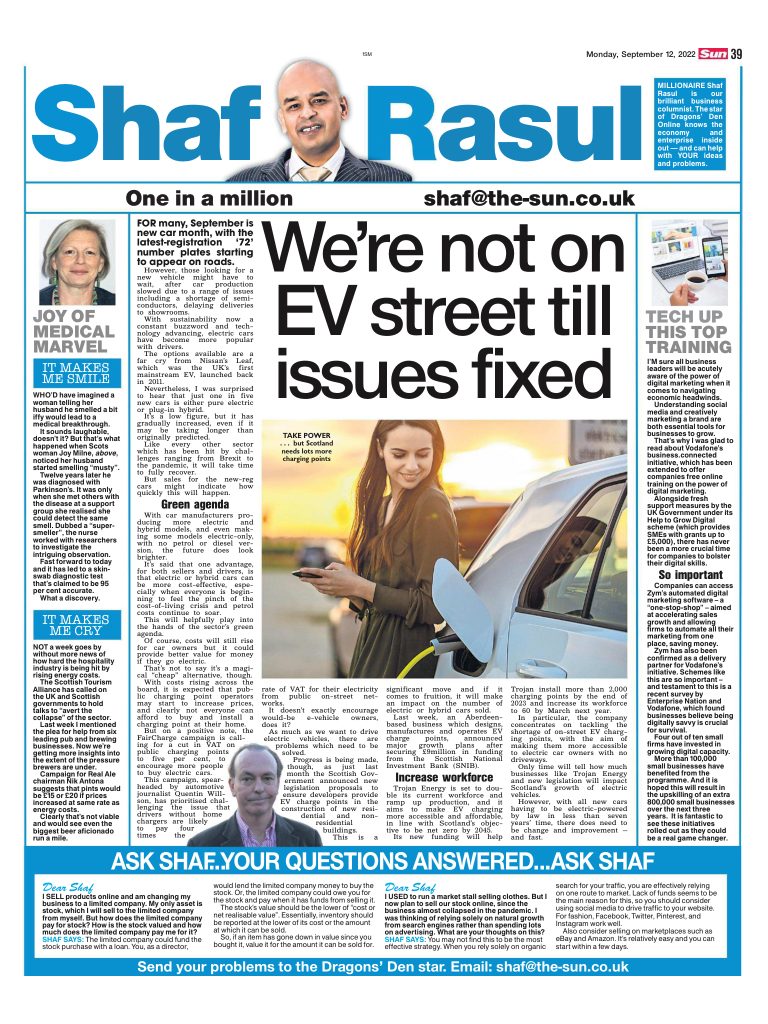September traditionally marks ‘new car month’ – and while fresh ’72-plate’ vehicles are hitting the roads, long lead times are plaguing buyers due to global production delays, including a shortage of semi-conductors.
Among the new releases, electric vehicles (EVs) remain a hot topic, yet surprisingly, only around one in five new cars are electric or plug-in hybrid. It’s a growing figure, but not rising as quickly as hoped.
While manufacturers are expanding their electric range – with some ditching petrol and diesel altogether – the transition has hurdles. Cost, infrastructure and supply issues all play a part.
Electric cars promise long-term savings and align with green ambitions. Yet for many, they’re still financially out of reach, especially when factoring in rising costs and lack of home charging options.
Public charging remains costly too – users pay four times the VAT compared to home charging. Thankfully, the FairCharge campaign, led by motoring journalist Quentin Willson, is calling for VAT to be reduced to 5% at public points.
Scotland is making progress. The government has proposed legislation to ensure all new residential and commercial buildings include EV chargers. Meanwhile, Aberdeen-based firm Trojan Energy secured £9 million in funding to install over 2,000 street-side chargers by end of 2023 – a much-needed boost for those without driveways.
Trojan’s growth could be a game-changer. With support from the Scottish National Investment Bank, they’re helping make EV access fairer while aiming to double their workforce.
Still, time is short. From 2030, all new cars sold in the UK will need to be electric. If we want that to be a smooth transition, infrastructure must scale up faster and become more affordable.
Change is coming – but it’s got to come quicker if we’re to truly turn Scotland electric.
Digital Marketing Skills Will Help Firms Ride the Storm
In today’s uncertain climate, savvy digital marketing can make or break a business.
That’s why Vodafone’s extension of its business.connected programme is so welcome. Offering free online training for SMEs, the initiative arrives alongside the UK Government’s Help to Grow Digital scheme, which provides grants of up to £5,000 for approved digital software.
The latest addition, Zym – an all-in-one automated marketing tool – helps businesses streamline customer outreach and marketing activity from a single dashboard. Zym also joins Vodafone’s initiative as a delivery partner.
A survey by Enterprise Nation and Vodafone shows that four in ten small firms have invested in digital skills, recognising the link between tech adoption and survival.
Already, 100,000 businesses have benefitted. The hope now is to upskill 800,000 more over the next three years.
For SMEs, this could be a lifeline. In a tough economy, digital tools can offer a clear path to efficiency, growth, and resilience.
It Made Me Laugh
‘Musty’ Smell Leads to Medical Breakthrough
What started as a joke between husband and wife has led to an extraordinary scientific advance.
Scottish woman Joy Milne told her husband he’d developed a “musty” smell. Years later, he was diagnosed with Parkinson’s. After meeting others with the disease, she realised they all carried that same scent.
Dubbed a “super smeller,” Joy worked with scientists to create a revolutionary new skin-swab test, now claimed to be 95% accurate for diagnosing Parkinson’s.
It sounds like something from a comedy sketch – but it’s a real medical marvel. All thanks to one sharp nose and a very honest partner!
It Made Me Weep
Hospitality Sector Teeters on the Brink
The rising cost of energy is hitting hospitality businesses hard – and the outlook is grim.
The Scottish Tourism Alliance has called on both the UK and Scottish Governments to urgently convene talks to prevent sector-wide collapse.
Following last week’s plea from major pub chains, the Campaign for Real Ale (CAMRA) has also weighed in. Chairman Nik Antona warned that if energy costs were passed on directly to consumers, we’d be paying £15–£20 a pint.
That’s clearly unviable. The threat is real, and without immediate support, countless hospitality jobs and businesses could be lost.


